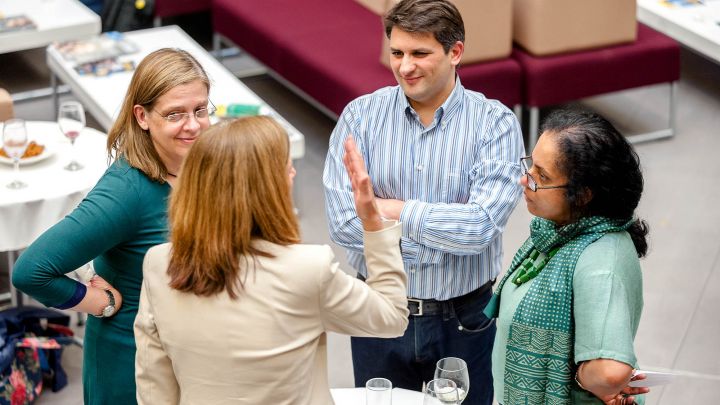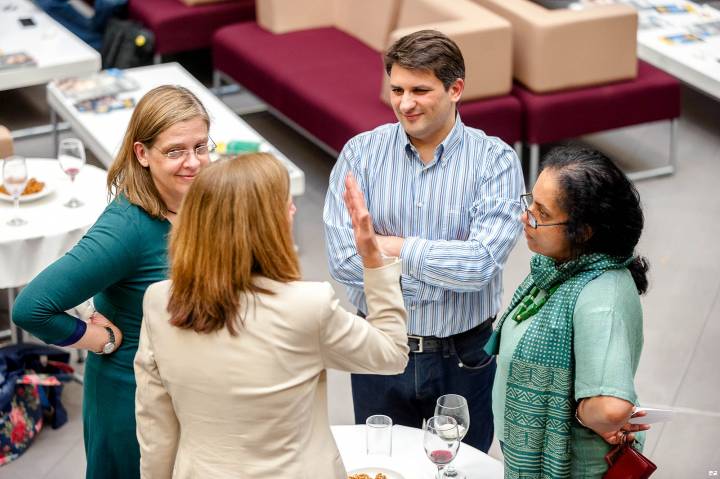We Have Always Been Hybrid: celebrating and remembering Bruno Latour

This event has taken place
View all upcoming events at Kingston University.
Time: 9.00am - 5.30pm
Venue: Second Floor Project Space, Town House, Penrhyn Road campus
Price:
free

Bruno Latour was a French philosopher and sociologist, arguably one of the most prominent scholars of the twentieth century, the recipient of 2013 Holberg Prize. He published extensively in English, and most of his French writings have been translated into English. His key early text, Laboratory life, was co-authored with Steve Woolgar. His contribution is primarily on the ethnographic study of science in the making, that is how facts are constructed, how new ideas are distilled from methods and procedures, but the intellectual impact of Latour's work span a wide range of disciplines, from art history and design to environmental history and sociology of finance.
Latour's outputs resist the customary disciplinary classification. His empirical research has an ethnographic and anthropological character, aimed at unveiling the practices and customs of scientists in the making of science, of facts (e.g., Latour & Woolgar, 1986; Latour, 1993/2007). Some of his most important contributions are based on archival research, for example his work on Pasteur (Latour, 1993) or his account of a failed public transport system in Paris, which had a deep impact on management and organisation studies (ARAMIS, Latour, 1996). He extended his ethnographic analytic framework from the science laboratory to the Conseil d'État to unveil the nature of legal reasoning in French administrative law (Latour, 2002). He offers reflections on religion and religious iconography (Latour, 2010). The arguments from his key philosophical text, We have never been modern, are applied to ecological politics and climate change and influenced the post-humanist turn in culture studies (Latour, 2004). Latour can be seen as a sociologist but only if sociology is understood and explained in terms of associations (Latour, 2005); he was one the main proponents of actor-network theory and a founder of the Media Lab at Sciences Po in Paris, which focused on creating new transdisciplinary approaches to study the digital social, engaging social scientists, data scientists and engineers.
Some of his books are clearly more philosophical: at their core is the patient but insistent invitation to question the distinction between epistemology and ontology that so many since Plato have tried to establish and enforce. He stresses rather that the means of knowing something are inevitably performative, that is they shape the things known. Latour's (2013) synoptic treatment of these different lines of scholarship is An inquiry into modes of existence.
Latour's influence is profound and lives on through the work of a heterogenous ensemble of scholars, artists and activists. At Kingston University, Latour's work has been significant for many members of the faculty as well as postgraduates; actor-network-theory and his approach to sociology of association are part of the taught curriculum. In this symposium we bring together some of key scholars who pioneered alongside with Latour the study of the social as a network connecting human and non-human actors, as well as scholars who developed Latour's approaches to transform their fields of research.
Cited works
- Latour, B. (1993/2007). Le «pédofil» de Boa-Vista: Montage photo-philosophique. Reprinted in Petites leçons de sociologies des sciences. La Découverte.
- Latour, B. (1993). The Pasteurization of France. Harvard University Press.
- Latour, B. (1993). We have never been modern. Harvard University Press.
- Latour, B. (1996). ARAMIS, or the love of technology. Harvard University Press.
- Latour, B. (1999/2004). Politiques de la nature: Comment faire rentrer les sciences dans la démocratie. La Découverte.
- Latour, B. (2002). La fabrique du droit. La Découverte.
- Latour, B. (2005). Reassembling the social. Oxford University Press.
- Latour, B. (2010). On the modern cult of the factish gods. Duke University Press.
- Latour, B. (2013). An inquiry into modes of existence: An anthropology of the moderns. Harvard University Press.
- Latour, B., & Woolgar, S. (1986). Laboratory life: The construction of scientific facts. Princeton University Press.
Agenda
- 09:00 – 09:30: Arrival and Coffee
- 09:30 – 09:45: Welcome from Egl?- and Fred
- 09:45 – 10:15: We have never been critical - Steve Woolgar
- 10:15 – 10:45: Bruno Latour: A social scientist and an accidental organization scholar - Barbara Czarniawska
- 10:45 – 11:15: The generosity of Bruno Latour: Reflections on education, research methods, and a bit of philosophy - Péter Erdélyi
- 11:15 – 11:30 Coffee
- 11:30 – 12:00: Provoking anthropology or .... "Society is always the size of a melon"! - Penny Harvey
- 12:00 – 12:30: Critical evidence - Andrew Barry
- 12:30 – 13:30 Lunch
- 13:30 – 14:00: Reassembling critique - Bonnie Sheehey
- 14:00 – 14:30: An obsession with inscriptions - Torben Elgaard Jensen
- 14:30 – 15:00: Latour and the metamorphic betwixt - Paul March
- 15:00 – 15:30: Is there still life in laboratories 44 years after Laboratory Life? - Camilo Castillo and Alvaro Alarcón
- 15:30 – 15:45 Coffee
- 15:45 – 16:15: Material agency as affordancing: Implications for the feeling of activity and self-consciousness - Lambros Malafouris
- 16:15 – 16:45: Geophysical friends: encounters in the critical and metamorphic zones - Nigel Clark
- 16:45 – 17:15: Amphibian pedagogy meets wet ontologies of the swamp - Gediminas Urbonas
- 17:30 – 18:30 Reception at Stanley Picker Gallery (along with drinks and nibbles)
- 19:00: Dinner
Booking is essential to attend this event.
For further information about this event:
Contact: Professor Fred Vallée-Tourangeau
Email: F.Vallee-Tourangeau@kingston.ac.uk
Directions
Directions to Second Floor Project Space, Town House, Penrhyn Road campus:
